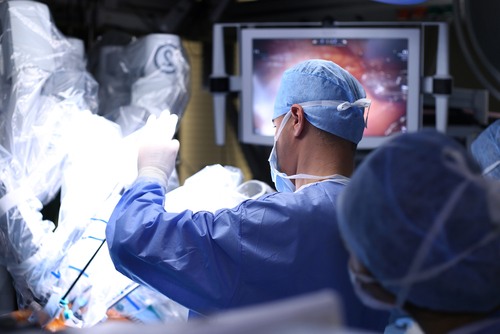A popular weight loss surgery, gastric bypass, is now linked to long term digestive issues.
Lead researcher Dr. Thomas Boerlage published the results of his study in the British Journal of Surgery. Boerlage discovered that Laparoscopic gastric bypasss surgery often causes gastrointestinal issues for patients. Boerlage examined 249 obese patients who under went the surgery and found that 70.7% of the patients in the study complained of indigestion, being unable to eat food with high fat or sugar content, and nor being able to eat red meat.
Boerlage explained that the results of the study illustrate the importance of communication between the physician and the patient. Moreover, patients considering undergoing the weight loss surgery need to understand the long-term implications of the procedure.
“With this study, physicians can better counsel their patients, both before and after surgery. It also helps patients considering a gastric bypass to make a more well-thought decision,” Boerlage explained in a statement.
What is Gastric Bypass Surgery?

ISTANBUL, TURKEY – January 11, 2016: Medical robot da vinci. Robotic surgery. (Master Video / Shutterstock.com)
Gastric Bypass surgery works by making the size of the human stomach smaller. Surgeons accomplish this through a myriad of different procedures. But, overall surgery has been able to treat morbid obesity, diabetes, and other diseases associated with weight gain.
In a 2016 study published in the ANZ Journal of Surgery researchers Benedict MacKay and his team found gastric bypass surgery to be a safe procedure. Researchers examined patients that underwentRoux-en-Y laparoscopic gastric bypass (LYRYGB) and found the weight loss surgery to be a safe procedure with a low complication rate. In addition, to a low mortality rate.
A 2014 study published in the journal of Diabetes, Obesity and Metabolism researchers found the death rate for gastric bypass surgery to be similar to knee surgery. In fact, scientists reported the mortality rate for LYRYGB to be 0.3% or 3 deaths for every 1,000 surgeries.
However, the weight loss surgery does not come without risks. A 2016 study published in the International Journal of Obesity by researchers from Louisiana State University found that mice that underwent gastric bypass surgery activated parts of the brain typically associated with anorexia.

